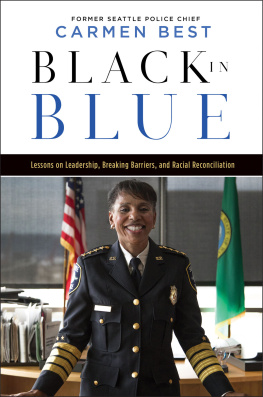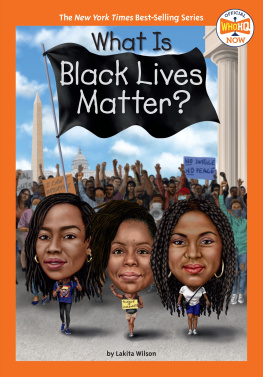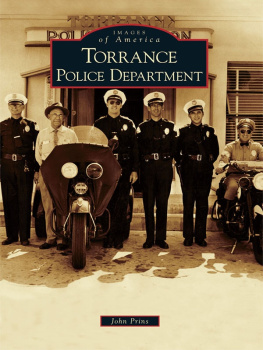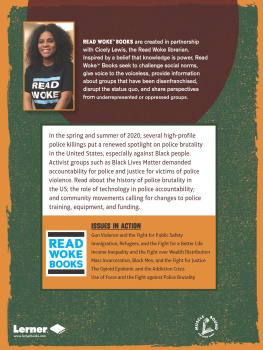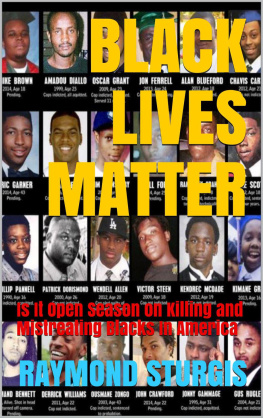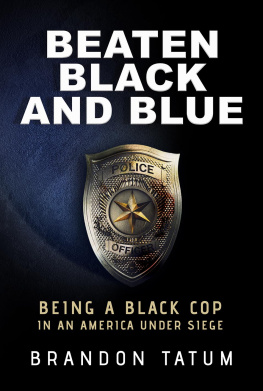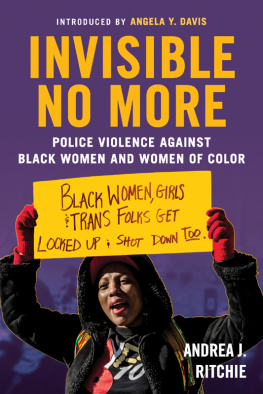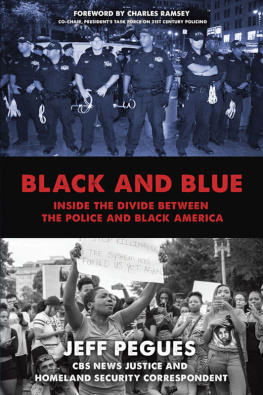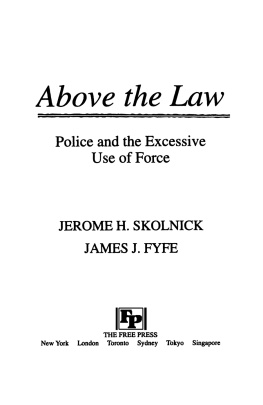2021 Carmen Best
All rights reserved. No portion of this book may be reproduced, stored in a retrieval system, or transmitted in any form or by any meanselectronic, mechanical, photocopy, recording, scanning, or otherexcept for brief quotations in critical reviews or articles, without the prior written permission of the publisher.
Published by HarperCollins Leadership, an imprint of HarperCollins Focus LLC.
Any internet addresses, phone numbers, or company or product information printed in this book are offered as a resource and are not intended in any way to be or to imply an endorsement by HarperCollins Leadership, nor does HarperCollins Leadership vouch for the existence, content, or services of these sites, phone numbers, companies, or products beyond the life of this book.
ISBN 978-1-4002-3062-4 (eBook)
ISBN 978-1-4002-3061-7 (HC)
Epub Edition August 2021 9781400230624
Library of Congress Cataloging-in-Publication Data
Library of Congress Cataloging-in-Publication application has been submitted.
Printed in the United States of America
21 22 23 24 25 LSC 10 9 8 7 6 5 4 3 2 1
Information about External Hyperlinks in this ebook
Please note that the endnotes in this ebook may contain hyperlinks to external websites as part of bibliographic citations. These hyperlinks have not been activated by the publisher, who cannot verify the accuracy of these links beyond the date of publication
To my daughters and grandchild,
for their constant support and unconditional love.
CONTENTS
Guide
THIS BOOK WOULD not have been possible without the help, support, and inspiration of the following people. First and foremost, my daughters, who have always been sources of strength and perseverance for me, who stood by me and motivated me to power through and never give up, no matter the challenge. This book would not exist without you, and for that and many other reasons, I will always be thankful to you. To my grandchild, who brings so much love and sunshine to my life. It was knowing that one day you will read this book and get to know me a little bit better through my words that pushed me to keep writing.
To my lawyers, Robert Barnett, who guided me through the unknowns of the publishing industry, and Anne Bremner, who gave legal advice and guidance the way only a true friend could. To Sara Kendrick at HarperCollins Leadership, for seeing my vision for the book and embracing it. To Chris Fisher, who helped quietly behind the scenes and kept me focused. To Brunella Costagliola at Kevin Anderson & Associates, for your help, time, and dedication: this book would not have happened without you.
To my many mentors, allies, and sponsors, who have supported me along the way, who believed in me, who opened doors for me, who pulled out a chair so I could have the proverbial seat at the table.
To my community, for allowing me to serve you. To my fellow African Americans, for being sources of great pride to me. To the countless men and women in uniform, who choose to serve their country and keep it safe every single day.
And, last but not least, to you, for taking the time to read this book, which above all else has been a true labor of love. I hope you find it inspiring and encouraging.
Yours truly,
Carmen Best
LETS HAVE AN honest conversation, shall we? Police brutality is real. Racism is real. Sexism is real. These are truths that simply cannot be denied. We read about them every day in the newspapers, we see them on television, and we witness them in our neighborhoods, as more and more stories of African American men and women whose lives are stolen by White police officers saturate our brains and crush our hearts.
I have served in the Seattle police force for almost thirty years, and the last almost three years of my career I was appointed chief of police, the first Black woman to ever hold that role in Seattle. And believe me when I tell you that, as a woman working in a male-dominated field and a Black Lives Matter supporter employed by the police force, I have experienced firsthand how excruciatingly presentand just how deeply rootedracism and sexism are in every aspect of society, and yes that includes policing.
I started my career the same year that police officers assaulted Rodney King in Los Angeles, and I retired the same year that police officers killed George Floyd and Breonna Taylorjust to name two of the 164 African Americans killed by the police in the first eight months of 2020. These were the same killings that in June 2020 prompted the Capitol Hill Autonomous Zone (CHAZ) in Seattle, which soon escalated to the Capitol Hill Occupied Protest (CHOP), where people occupied the East Precinct and the streets while carrying weapons and inciting the crowds with signs that read Who prosecutes the police? Black Lives Matter! Defund the police! Abolish SPD! The day before my retirement, after witnessing so much pain in my community, I remember thinking to myself: How is it that we are still facing the same issues we faced almost thirty years ago when I began my career in policing? I carried a badge and a gun for nearly three decades and my only goal was to make things better. Did I accomplish that?
As chief, I led a group of officers that better mirrored the cultural diversity that characterizes our countryreaching record-breaking diversity hiring and recruitment within the department. I strived to engage with my community to ensure public safety, gender equity, and inclusion. I applauded and supported officers who positively influenced the community, and I fired those whose morals, values, and codes of conduct to me smacked of racism and sexism, thus going against the core principles of policingthose officers who, fueled by their poisonous prejudices, served apart from the community instead of serving as part of the community.
Yet, while much has changed, it hasnt been nearly enough, and these pervasive problems still exist. More violent riots erupted, more people demanded to defund the police, and more Black mothers and fathers mourned the loss of their children. And I found myself in the middle of it all, as a Black woman and mother but also the chief of police and defender of the US Constitution, as a believer in law and order as well as in the Black Lives Matter movement. To many, it seemed like the two versions of me couldnt peacefully coexist in our society. To me, it was a no-brainer: Why wouldnt I want to be part of the police force? After all, I am a clear representation of what the police force as a whole is: a big dichotomy. But the scale is unbalanced, and I think you would be surprised to learn that, in my opinion, the side weighing more than the other is the positive one.
Over the years, I have witnessed my fellow officers make more of a positive impact in our community and society than a negative one. I have led more officers who cared deeply about their fellow citizens than those who didnt. I have seen change take placealthough not as quickly as we would hope or needwithin the police force, such as when my predecessor, a woman, appointed me to be her deputy chief, thus paving the way for me to then one day become the first Black female chief in Seattle.
Racist, sexist, bad people are everywhere in this country, and they work in every profession. Yet stories of police brutality claim the front pages of the countrys newspapers because police officers have the power to take away peoples freedom. They can put people in handcuffs and take them to jail. They can shoot them and harm themand, under certain circumstances, they do so justifiably. But racism doesnt start and end with the police force. Racism exists everywhere: in education, health care, and every other industry. And thats why I am a firm believer that defunding the police is not the answer, because the police force is not the crux of the problem. There is a culturally pervasive and inherent malignancy that manifests itself in almost every aspect of society.
Next page
